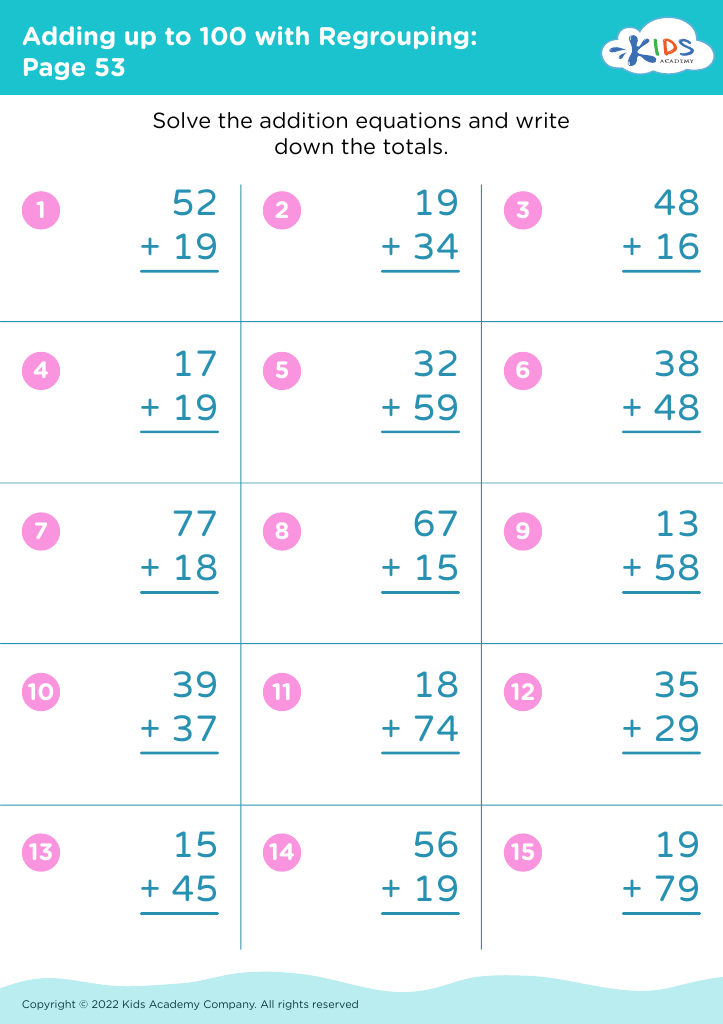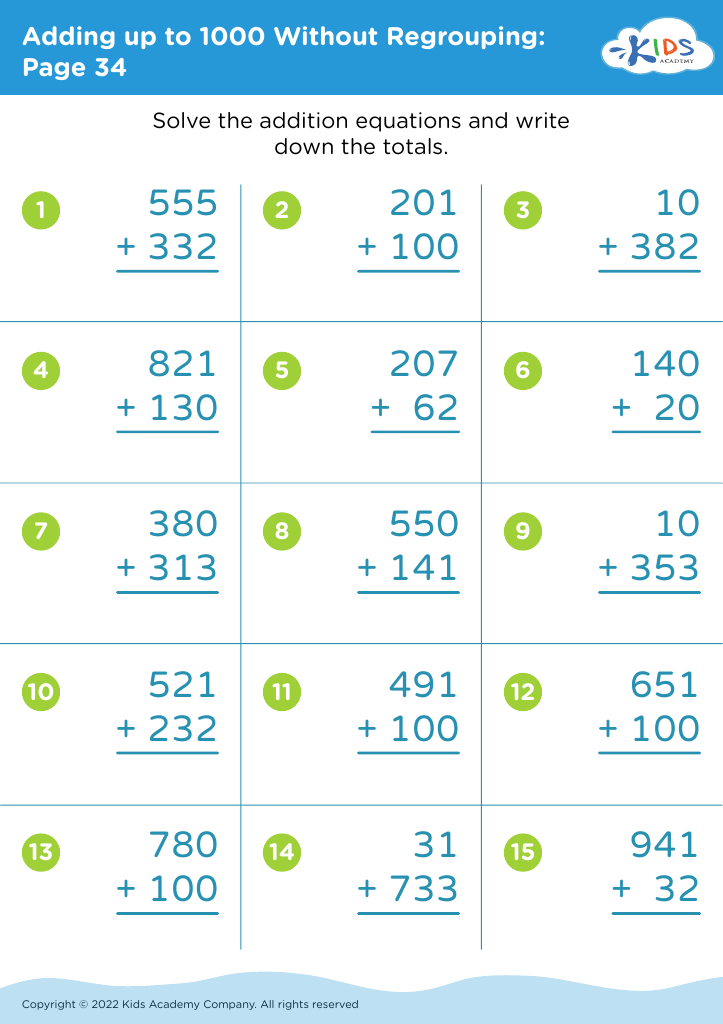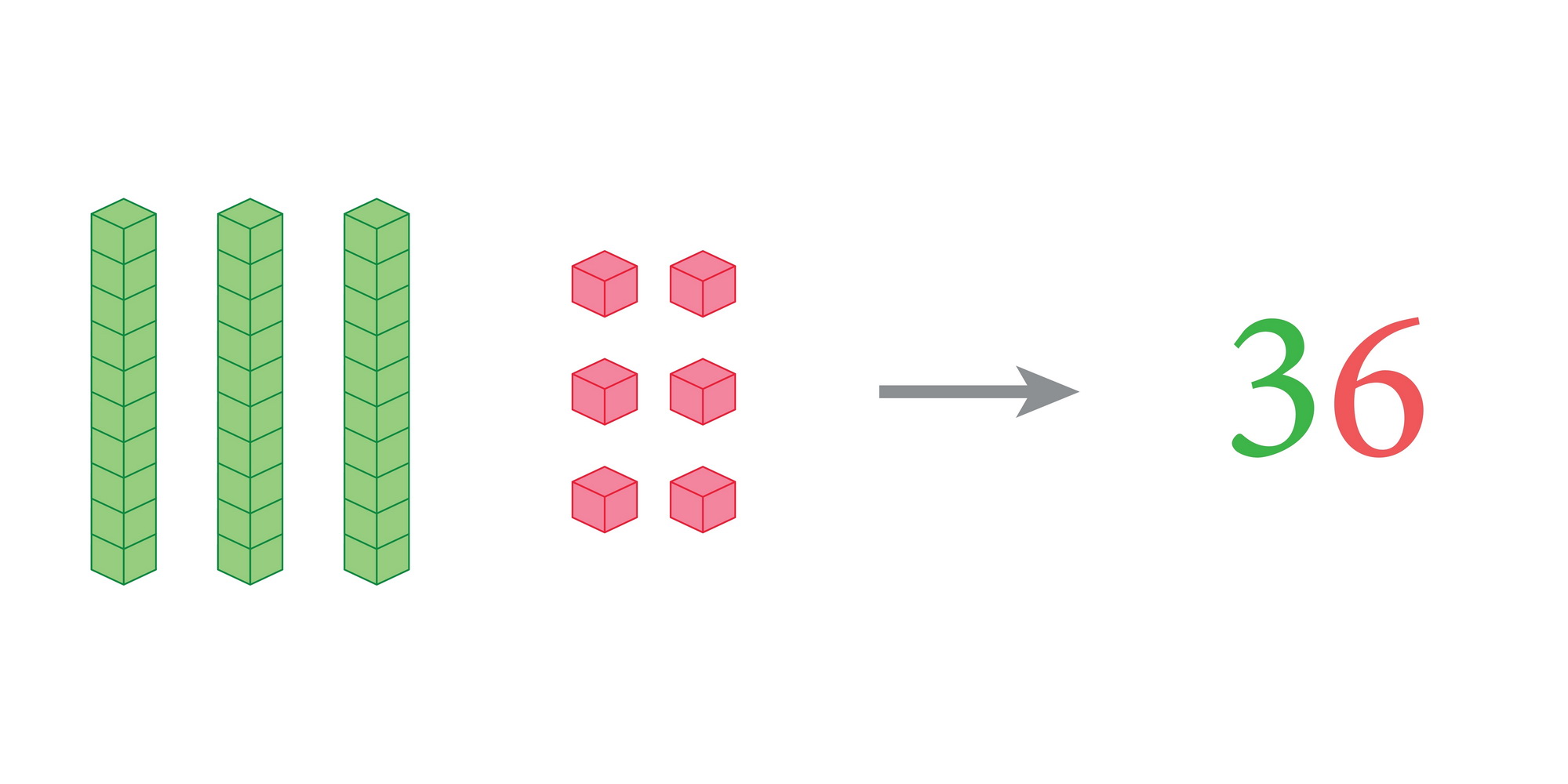Improve problem-solving Addition Worksheets for Ages 4-7
4 filtered results
-
From - To
Enhance your child's problem-solving skills with our engaging Addition Worksheets designed specifically for ages 4-7. These carefully crafted resources feature fun and interactive exercises that promote critical thinking and mathematical reasoning. Through colorful illustrations and relatable scenarios, children will practice addition while developing essential problem-solving abilities. Our worksheets offer a progressive approach, ensuring that young learners build confidence as they tackle each challenge. Perfect for home practice or classroom use, these worksheets not only make learning enjoyable but also lay a solid foundation for future mathematical success. Encourage your little ones to explore the world of numbers with our Improve Problem-Solving Addition Worksheets today!
Improving problem-solving skills in addition for children aged 4-7 is crucial for their overall cognitive development. At this stage, children are forming foundational mathematical concepts, which will be essential as they progress in their education. Emphasizing problem-solving in addition helps children understand not just how to compute numbers, but also why those calculations matter in real-world situations.
By nurturing these skills, parents and teachers instill critical thinking abilities that extend beyond basic arithmetic. Children learn to recognize patterns, analyze situations, and approach challenges systematically. This practice fosters resilience, encouraging them to persist through obstacles rather than giving up when faced with difficulty.
Engaging in problem-solving activities like puzzles, games, and hands-on exploration enhances children’s curiosity, making learning enjoyable and interactive. These experiences can significantly boost their confidence and independence, as children discover diverse ways to arrive at solutions.
Moreover, when adults actively promote problem-solving in addition, they create a supportive environment that values inquiry and exploration, setting the stage for lifelong learning. Ultimately, caring about and actively fostering problem-solving in early mathematics equips children with essential skills they will carry into their futures, both in education and everyday life.





















